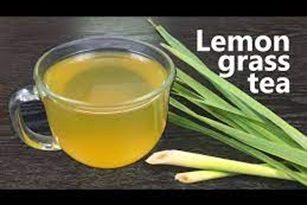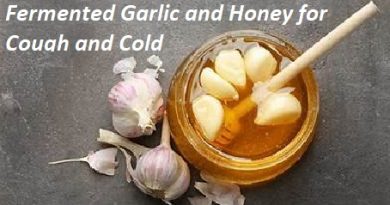How To Stop Coughing: Cough Relief ~ Calm Daytime Coughing
How To Stop Coughing: Cough Relief ~ Calm Daytime Coughing. Please watch >>>>
- How To Get Rid of a Cough
- How to Relieve a Cough from Cold or Flu

Coughing, as irritating as it can be, is a physiological response to an irritant in your throat or airways. According to the Mayo Clinic, the irritant activates nerves, which send a message to your brain, which then signals muscles in your chest and abdomen to push air out of your lungs to drive the irritant out.
Coughs can be caused by a variety of medical illnesses, including the common cold, the flu, allergies, post-nasal drip (when phlegm falls from the back of the nose into the throat), and acid reflux (when stomach acid travels up into the esophagus and irritates the windpipe).
Coughs, whatever the cause, can be very bothersome if you have one (and also to your bedmate or workplace mate).
What’s the good news? “No matter what you do, most coughs go away within a few weeks.”
What is a cough?
Coughing is a reflex that helps clear irritants from your airways. Allergens, medical disorders, drugs, and other irritants stimulate airway nerves, resulting in the violent ejection of air from the lungs.
A cough can be dry or chesty, and it can be productive (producing mucus) or nonproductive (not producing mucus).
Coughs that are chesty are frequently productive, whereas dry coughs are usually ineffective.
Dry cough
It is not caused by excessive mucus and is most likely caused by irritation. Cough suppressants can be used to treat dry coughs.
Chesty cough
It can be both productive and unproductive. Excess mucus in the lungs and airways causes it, and you may have trouble expectorating (coughing up) the mucus to clear the airway passages.
Expectorants are sometimes used to treat chesty coughs. This will assist thin the mucus and increase the productivity of your cough.
Other Types of Coughs
While a wet cough and a dry cough are the most frequent symptoms of a cold, flu, or allergies, there are additional types of coughs to be aware of.
These are some examples:
- Whooping cough. This is due to an infection, which makes your cough sound like a “whoop.”
- A barking cough. This could be a symptom of croup. Your cough will sound like a bark.
- A wheezing coughing. This can occur if your airways get obstructed as a result of an infection or a persistent illness such as asthma.
The best cough treatment will be determined by the underlying cause. Honey and saltwater gargles are two home treatments that may be beneficial.
Over-the-counter and prescription drugs are available if home cures do not work.
What causes coughing?
Coughing can be caused by a variety of factors. Coughs are commonly caused by the following factors:
Allergens
- Pollen
- Dust
- Animal dander, as well as
- Mold
Irritants
- Smoking ~ tobacco use
- Breathing in secondhand smoke
- Pollution,
- Chemical fumes,
- Fragrances, etc.
- Scented candles, air fresheners
A dry cough is frequently caused by;
- Viruses that cause colds and flu,
- Allergies,
- Acid reflux,
- Ace inhibitor medications, as well as
- Irritants like cigarette smoke.
Cold or flu viruses, as well as chronic obstructive pulmonary disease (COPD), are common causes of a wet cough.
A persistent or chronic cough is one that lasts more than three weeks and can be caused by a variety of factors.
- cardiovascular illness,
- Asthma
- pulmonary disease
- bronchitis, as well as
- the whooping cough
19 natural and home cures for cough relief
Once the source of your cough has been determined and any major underlying medical disorders that require treatment have been ruled out, cough symptoms can often be treated or healed with home remedies.
Before using any herbal remedies or natural supplements, see your doctor because some may interact with the prescriptions you are taking.
1. Keep hydrated: Drink plenty of water to help thin mucus.
2. Inhale steam either taking a hot shower or pouring boiling water into a bowl, facing the bowl (at least 1 foot away), draping a towel over the back of your head to form a tent, and inhaling. If you are uncomfortable, you may stop at any time. Note: Do not do this if your cough is caused by asthma, as steam may aggravate your symptoms.
3. To help loosen mucus, use a humidifier.
4. Cough drops or lozenges relieve sore throats (but not in small children).
5. Gargling with salt water helps to remove mucus from the throat.
6. Elevate your head with an extra pillow at night.
7. Avoid smoking and secondhand smoke.
8. Avoid inhaling irritants including dust, fragrances, and pollution.
9. Make use of honey. It is a cough suppressant that can be taken alone in adults and children over the age of one year.
10. Ginger tea relieves throat irritation.
11. To help break up mucus, use eucalyptus oil in a vaporizer or apply it on your chest.
12. Mint: Taken as a tea, it aids in the loosening of mucus in the lungs.
13. Menthol is typically included in lozenges and can help to relieve coughs.
14. Licorice root has expectorant properties.
15. Slippery elm coats the throat and soothes it.
16. Apple cider vinegar (diluted or combined with honey) aids in mucus thinness.
17. Turmeric can help with stomach issues and coughs induced by GERD.
18. Upper respiratory tract illnesses may benefit from chicken soup.
19. Chocolate. And because the greatest is saved for last…save some chocolate! Chocolate contains theobromine, which may decrease vagus nerve activation, which causes coughing.
The Most Effective Natural Cough Remedies
While drugs are occasionally required to manage a cough, natural therapies such as gargling with salt water and eating honey may also be beneficial.
- Honey
- Prebiotics
- Bromalain
- Peppermint
- Marshmallow rhizome
- Thyme
- Gargle with salt
- Ginger
- Elm (slippery)
- Curcuma
How to Stop Coughing During the Day
10 Ways to Get Rid of a Daytime Cough
- Consider an Expectorant.
- Use a Cough Suppressant.
- Drink a Warm Drink
- Increase Your Fluid Intake
- Suck on some hard candy
- Consider a Cough Medicine Designed for Use at Night.
- Enjoy Some Honey
- Use a Vaporizer to Treat Your Cough
How to Quell a Nighttime Cough
We’ve all heard that the best treatment is sleep, especially when it comes to getting over a cold.
If you have a lingering cough that keeps you up at night, consider these nightly cures to help you sleep.
- Think about using a cough medicine designed for use at night.
- Enjoy Some Honey
- Use a Vaporizer to Clear Your Cough
- Make use of an extra pillow — or two
- Gargle with salt water
Tips to help prevent a cold
Although it is not always possible to avoid catching a cold or other respiratory tract illness that might cause a cough, the following precautions can help:
- Avoiding interaction with sick people
- Hand washing on a regular basis
- Making use of a disinfectant
- Keeping hydrated
- Stress reduction
- Getting enough rest
- Taking anti-inflammatory supplements
Allergy symptoms can occasionally be mistaken for cold symptoms. Avoiding allergens such as pollen, dust mites, animal dander, and mold can help to prevent allergy flare-ups.
A person should also consult a doctor about getting allergy injections or medicines.
How to prevent coughing
When suffering from a cold or another respiratory ailment, a person may desire more immediate relief.
While some of the suggested cures, such as honey or steam, may provide immediate relief, others do not.
Additional actions that a person may find useful in lowering their cough include:
- Consuming warm liquids such as broth or teas
- Abstaining from dairy products
- Abstaining from alcohol
- Inhaling in moist air from a humidifier or shower steam
Over-the-counter drugs, such as those containing dextromethorphan or cough drops, may also provide some help. These can aid in cough suppression.
Know When to See Your Doctor
If your cough persists after a few weeks, or if you’re experiencing wheezing, fever, shortness of breath, or chronic pain or pressure in your chest, consult your doctor, advises Dr. Carrasquillo.
These are symptoms of something more serious, such as chronic sinusitis, asthma, bronchitis, pneumonia, or heart problems.
Summary
Several natural therapies may help relieve a person’s cough, either directly or indirectly.
Though many have some scientific support, they may not be suitable for everyone. Furthermore, natural remedies do not ensure the safety of everyone.
Before trying any new supplements or home cures, people who are using drugs or have particular health conditions should consult with their doctor.
Questions
Natural cough remedies
Honey and saltwater gargles are classic cough treatments. “Hot liquids with honey can temporarily relieve and treat coughing.”
Herbal teas prepared from peppermint, ginger, slippery elm, thyme, turmeric, or marshmallow root are also available. Bromelain vitamins and probiotics may aid with cough relief, but additional research is needed.
How to Relieve a Cough from Cold or Flu
Sip a Warm Beverage
The warmth of a drink, such as tea or lemon water, can ease a painful or irritated throat caused by coughing.
Warm fluids also assist to release mucous, making coughing easier. With a few drops of honey added, you have a natural cough suppressant.
How do I stop coughing directly?
These are some examples:
- Drinking plenty of water.
- Sipping hot water with honey.
- Using a humidifier in the home.
- Taking over-the-counter (OTC) cough medicines.
- Taking a steamy shower.
How do you stop a severe cough at night?
A nightly cough can be relieved using a variety of methods.
They include watering the room, eliminating dust, closing windows to keep pollutants and allergens out, salt water nasal irrigation, herbal therapies, and prescription and over-the-counter cough suppressants.
What can I drink to stop coughing?
Tea or warm lemon water mixed with honey is an age-old remedy for a sore throat. However, honey alone may be an effective cough suppressant.
Children aged 1 to 5 with upper respiratory tract infections were given up to 2 teaspoons (10 milliliters) of honey at bedtime in one research.
I can’t stop coughing once I start.
A recurring, lingering cough can be caused by a number of disorders, but the majority are caused by these five:
- Postnasal drip
- Asthma
- Gastroesophageal reflux disease (GERD), chronic bronchitis, and medication with ACE inhibitors, are used to treat high blood pressure and heart failure.
What happens if you cough excessively?
Coughing can be quite powerful at times. Coughing for an extended period of time might irritate the lungs and trigger even more coughing.
It is extremely taxing, causing insomnia, dizziness or fainting, migraines, urine incontinence, vomiting, and even fractured ribs.
How can you cure a dry cough?
These at-home therapies may be beneficial:
- Stay hydrated by drinking plenty of drinks. To relieve irritated airways, drink hot tea or water with honey and lemon.
- Cough drops or hard candies can be sucked. Sucking on a firm lozenge stimulates saliva production, which relieves throat discomfort.
- Take a teaspoon of honey.
- Make use of a humidifier.
What cures cough naturally?
Natural Cough Treatments
- A teaspoon of honey may reduce mucus formation.
- Hot beverages. While hot beverages will not relieve a congested head, they will relieve a cough considerably better than room-temperature liquids.
- Steam
- Ginger
- Water
- Neti pot
- Elderberries
- Menthol
How do you use onion to treat a cough? onion for cough?
People say that cutting up an onion would relieve your cough.
Cut an onion into quarters and place it on a plate on your bedside table or at the foot of the bed before going to bed.
Although using onions may sound like an old wives’ tale, Russell claims that it is fairly popular in Spain and France.
Why do I have a tickling sensation in my throat and can’t stop coughing?
Tickly coughs, also known as post-viral coughs, are most commonly triggered by a recent cold or flu.
If this is the case, you will most likely also have additional cold and flu-like symptoms.
Other tickly cough causes include allergies, air pollution, and an abrupt temperature change.
What does an asthma cough feel like?
The majority of asthmatics have a dry cough that does not generate mucous.
This is a symptom of asthma that occurs when the airways constrict in reaction to an irritant.
In addition to the cough, the constricted airway often causes a high-pitched wheeze sound.
Why am I beginning to cough?
Acute coughs usually start suddenly and are caused by a cold, flu, or sinus infection.
They normally disappear after three weeks. Coughs that are subacute last 3 to 8 weeks. Coughs that continue longer than 8 weeks are considered chronic.
What causes cough attacks?
Chronic causes are the most common.
- Allergic reactions.
- Asthma (which is more frequent in youngsters
- GERD (gastroesophageal reflux disease)
- Bronchitis
- Postnasal dripping.
How can I tell if my cough is serious?
Coughs that generate specific sounds, such as whooping, wheezing, or barking, may also indicate a larger problem.
Coughs that continue more than eight weeks can be a sign of a more serious or chronic lung illness.
How do you sleep when you have a cough?
If your cough worsens when you lie down, consider propping up your head and neck.
Make yourself comfortable by using a wedge cushion or many bed pillows while laying in a position that elevates your head above the rest of your body.
Coughs last for how long?
Most coughs resolve within three weeks and do not require treatment. A dry cough is one that is tickly and does not generate phlegm (thick mucus).
What foods trigger coughing?
Some meals, particularly dairy-based foods, are known to increase phlegm production.
Coughing after eating foods like milk and cream might occur when the body attempts to eliminate mucus from your airways.
14 effective cough home treatments
- Consider honey. Honey has a high viscosity and functions similarly to cough drops.
- Rinse your mouth with saltwater. Gargling with salt water can aid in the killing of bacteria and the loosening of mucus in the throat.
- Consider ginger.
- Inhale some steam.
- Purchase a humidifier.
- Purchase an air purifier.
- Make use of marshmallow root.
- Take thyme.

How to Get Rid of a Cough in Your Throat How do you get rid of a cough in your throat quickly?
Drink a Warm Drink
The warmth of a drink, such as tea or lemon water, can ease a painful or irritated throat caused by coughing.
Warm fluids also assist to release mucous, making coughing easier. With a few drops of honey added, you have a natural cough suppressant.
Finally, honey and saltwater gargles are classic cough treatments. Herbal teas prepared from peppermint, ginger, slippery elm, thyme, turmeric, or marshmallow root are also available.
Bromelain vitamins and probiotics may aid with cough relief, but additional research is needed.
How to get rid of a cough in 5 minutes ~ What stops coughing fast?
How to Calm Daytime Coughing
- Use an Expectorant.
- Look for a cough suppressant.
- Drink a Warm Beverage.
- Increase your fluid intake.
- Eat Hard Candy.
- Think about using a cough medicine designed for use at night.
- Enjoy some honey.
- Use a vaporizer to zap your cough.
Coughing that is uncontrollable
A paroxysmal cough is characterized by violent and uncontrollable coughing that is both exhausting and uncomfortable.
You can have trouble breathing and perhaps vomit. The most prevalent cause of paroxysmal cough is pertussis, sometimes known as whooping cough.
Unable to stop coughing dry cough
Treatment for a dry cough and home remedies
To hydrate and relieve sore throat tissue, try sucking on throat lozenges.
Taking over-the-counter cough suppressants like dextromethorphan (Robitussin) to inhibit your cough reflex. To relieve sore throat tissue, add honey to a hot drink.
I can’t seem to quit coughing, yet I’m not sick.
A recurring, lingering cough can be caused by a number of disorders, but the majority are caused by just five: postnasal drip, asthma, gastroesophageal reflux disease (GERD), chronic bronchitis, and medication with ACE inhibitors, which are used to treat high blood pressure and heart failure.
12 Natural Cough Remedies to Stop a Tickly Cough Immediately
- Honey. According to studies, honey can help ease coughs.
- Ginger. Ginger, which has anti-inflammatory effects, may help relieve a dry or asthmatic cough.
- Fluids that are hot
- Steam
- The root of the marshmallow
- Gargle with saltwater.
- Bromelain.
- Thyme.
These are some ways to stop dry coughing attacks:
- drinking plenty of water.
- using a humidifier in the home.
- sipping hot water with honey.
- taking over-the-counter (OTC) cough medicines.
- taking a steamy shower.
Which medication is the most effective for dry cough?
Cough suppressants
- Robitussin Cough and Chest Congestion DM.
- Mucinex DM.
- Dimetapp Cold and Cough.
- Theraflu Cough Relief.
How to Stop Dry Coughing Up Blood ~ What is the Treatment for Coughing Up Blood?
1. A bronchoscopy will be performed to remove any blockages in your airways that may be causing the bleeding.
2. Bronchial artery angiography and embolization are procedures that are used to reduce blood flow in the blood arteries that are causing your bleeding.
3. Tranexamic acid is a medication used to control bleeding caused by substantial blood loss.
How to stop dry coughing from allergies
How can I treat a dry cough and tight chest?
1. Stay hydrated by drinking plenty of drinks. To relieve irritated airways, drink hot tea or water with honey and lemon.
2. Cough drops or hard candies can be sucked. Sucking on a firm lozenge stimulates saliva production, which relieves throat discomfort.
3. Take a teaspoon of honey.
4. Make use of a humidifier.
How to stop dry coughing in babies
How can I treat a dry cough and tight chest?
1. Stay hydrated by drinking plenty of drinks. To relieve irritated airways, drink hot tea or water with honey and lemon.
2. Cough drops or hard candies can be sucked. Sucking on a firm lozenge stimulates saliva production, which relieves throat discomfort.
3. Take a teaspoon of honey.
4. Make use of a humidifier.


